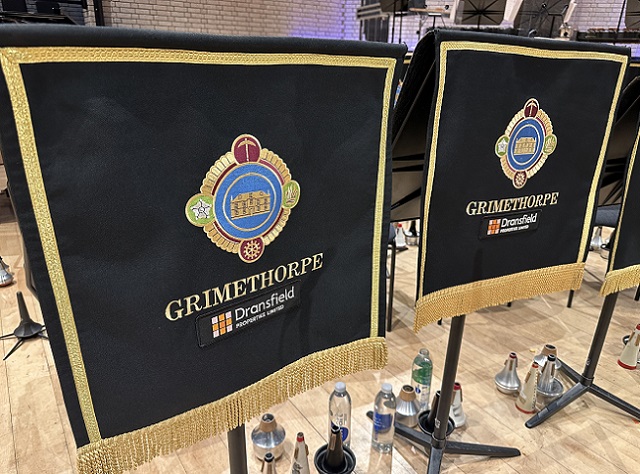

Works of intriguingly contrasting character and inspiration spanning almost 90 years of original brass band writing were encapsulated in Grimethorpe’s impressive festival contribution.
Led with elegant authority by MD Ben Palmer, it opened in the ‘golden era’, with John Ireland’s slightly acerbic London portrait, ‘Comedy’.
A rarity in that it was later expanded into a successful orchestral version, the ‘…’dilly, Piccadilly’ 1930’s bus conductor call remains a chirpy mini leit-motif, although Janacek mimicked hotel bell-boy calls (as well as the monkeys at London Zoo) when he was in town years before.
It was the darker elements of the opening section though, played with a broad melodic richness that more readily recalled the early morning awakening of a smoggy, but still lovely capital city ready to take its busy commuters to that ultimate destination.
Deconstruction
In contrast, Harrison Birtwistle eschewed all wit and nostalgic charm in his austere ‘Grimethorpe Aira’.
Originally premiered in 1974, its bleakness still has a remarkable elemental beauty – a deconstruction of the industry of extraction in which the music reflects the hard shards of rock from which the black diamonds of coal are found.
Any misplaced romantic notion of a celebration of a mining industry fuelled by collectivism, community and hymn tunes is replaced by anger, dissonance and angularity; more a reflection of the realities of 1970s mining politics than anything else.
Any misplaced romantic notion of a celebration of a mining industry fuelled by collectivism, community and hymn tunes is replaced by anger, dissonance and angularity; more a reflection of the realities of 1970s mining politics than anything else. The MD drew a mechanical certainty from the score from start to finish, not once loosening its steely grip.
Poetic
A much more serene appreciation was evident in Liz Lane’s ‘Beyond the Light’ – the composer’s tribute to Bramwell Tovey. Here the music lightened and flowed in poetic stanzas, carefully shaped and moulded.
Theo Rossier’s ‘Stendhal’s Syndrome’ won the 2022 European Composers Competition at the European Championships in Birmingham, and its timely reprise was a welcome addition in highlighting the deliberate divergences in Grimethorpe’s programme.
Something of a tone poem to feelings of anxiety, apprehension and sheer panic induced by viewing a specific work of art, it is a boldly confident exploration that surprisingly ends on an optimistic note of caution.
Something of a tone poem to feelings of anxiety, apprehension and sheer panic induced by viewing a specific work of art, it is a boldly confident exploration that surprisingly ends on an optimistic note of caution.
Can do
No such feelings of unease with Jack Stamp’s heartily American ‘can-do’ spirit that bubbled though his episodic ‘Vociferation’. The jazz waltz captured in the middle of the five variant sections was a little gem – the piece as a whole, clever and compact.
Although it was disappointing to hear just the one movement, ‘Cope’s Challenge’ from ‘Three Figures’ by Herbert Howell’s, it was a reminder of the composer’s intricate writing style and clever nods of mini appreciation (written in 1960) to the likes of Percy Fletcher’s ‘Epic Symphony’.
The somewhat deliberate ambiguity of Edward Gregson’s extended ‘Postcard to Grimethorpe’ rounded things off.
Where Birtwistle’s work saw conflict in the industry of coal, Gregson saw community – the work touching subtly and rather sadly on what has been lost since the demise of the Grimethorpe Colliery itself.
Iwan Fox









